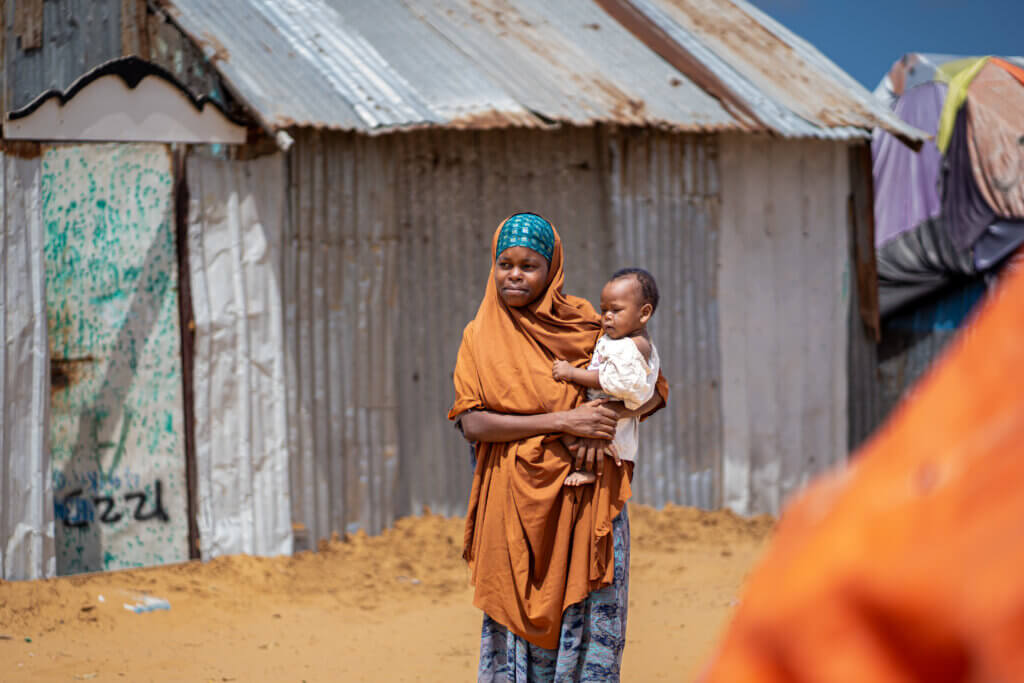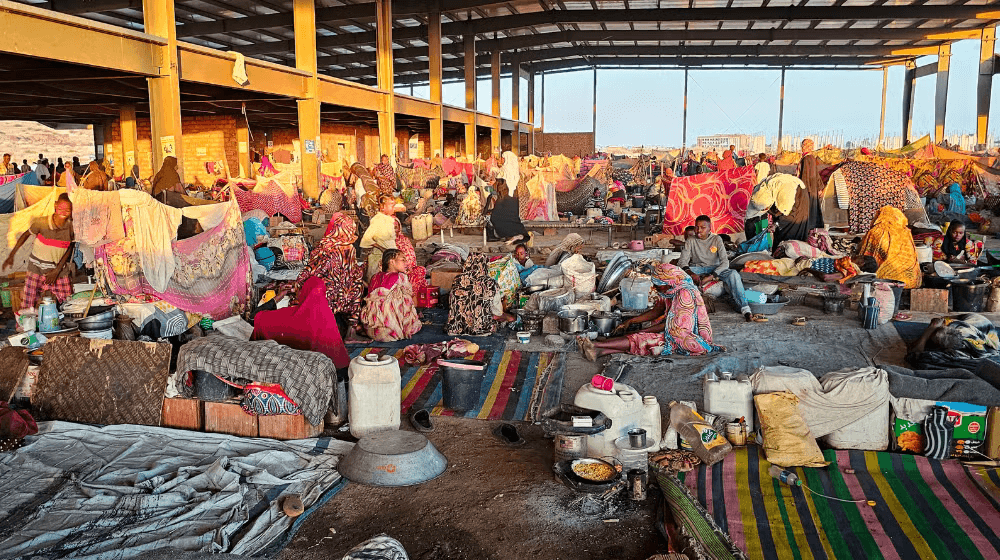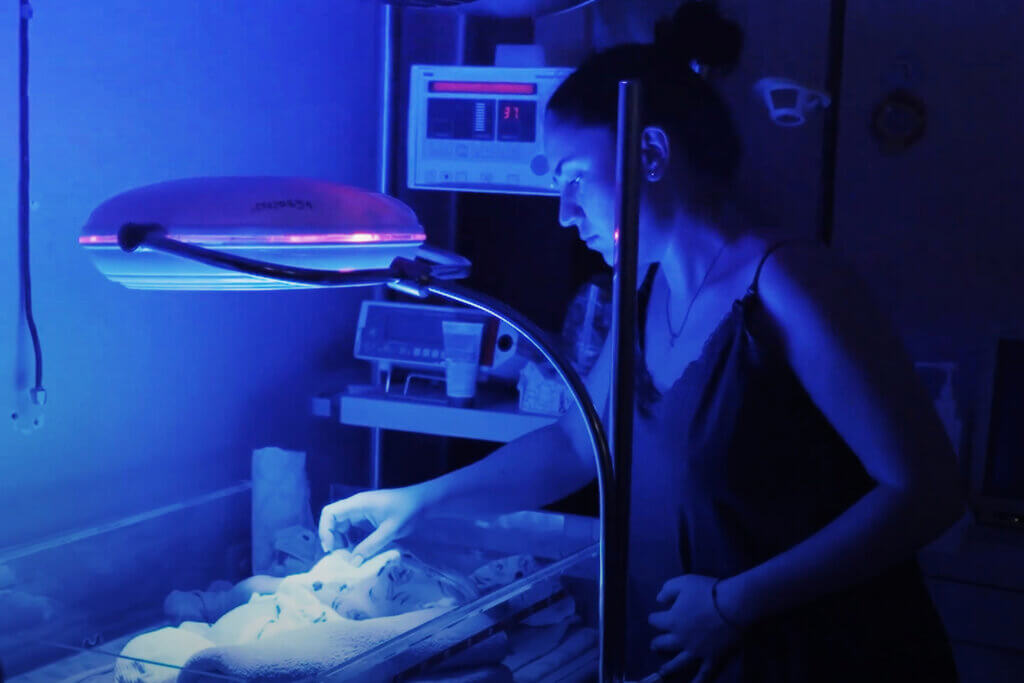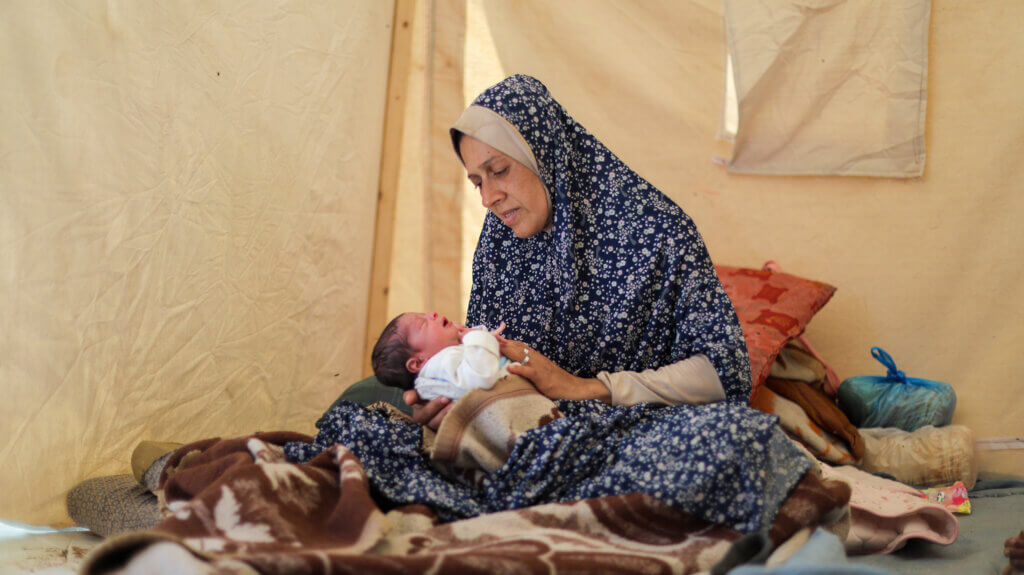
This month we’re celebrating motherhood and the resilience of mothers everywhere. Regardless of where in the world they are located or what situation they face, mothers continuously do everything they can to ensure their children are as safe as possible. From eating last and least to traveling countless miles to deliver their babies safely, the perseverance and dedication of mothers around the world is remarkable.
But we cannot fail to acknowledge the danger that comes with new motherhood. Worldwide, a woman dies from childbirth or pregnancy complications every 2 minutes. In some of the most dangerous places in the world to be a mother – places under fire or battered by natural disaster – that metric is even higher.
This Mother’s Day, we’re highlighting just some of the millions of stories of survival and resilience that new mothers have endured for them and their children – and how UNFPA was able to support them during these critical moments.
Childbirth on the run in Sudan

For two years, civil war has created an unprecedented humanitarian crisis in Sudan. Famine has been declared in parts of Sudan, up to 80% of health facilities are either closed or barely functioning in the most impacted areas of the country, and rates of violence against women have skyrocketed. Pregnant women are bearing the brunt of harm.
In Aj Jazirah State, one of the hardest hit areas, Amina was forced to flee violence while nine months pregnant. She made it on foot to a neighboring village before her labor pains became too intense for her to continue.
She heard of a local doctor who was delivering babies at his home and made her way there just in time. Her complicated labor required a C-section – but the doctor was ready to take on the challenge using the basic equipment that he had on hand. He safely delivered Amina’s baby on the floor of his house and then assisted with twenty other childbirths that day.
But only six hours after Amina’s C-section, the shooting began again. “I had to start walking again just six hours later, carrying my baby while my wounds were still fresh and painful,” Amina shared. With the help of some more kind strangers who saw her struggling on the side of the road and gave her a spot in their donkey-pulled cart, she and her baby safely made it to Gedaref State and were taken to a UNFPA maternity hospital.
“The women helping us here are very kind. They spoke with me for hours and provided a bag full of hygiene supplies – they took care of even the smallest details, which meant so much.”
Amina was treated back to health – but she never found out what happened to the doctor that delivered her baby.
Amina is not the only woman who has had to give birth while fleeing violence in Sudan. With 270,000 pregnant women in perilous situations across Sudan, delivering babies while fleeing has become all too common. One midwife, Awatef, who was forced to flee Aj Jazirah and is now in a displacement camp in Gedaref, shared:
“I delivered four women on our way here. I delivered them in the bush, with only very basic sterilization – I had nothing but water and soap. One of the women was bitten by a scorpion during labor – it was terrifying and extremely painful for the mother, and it scared me too. We eventually found a car and sent her to the hospital. Thankfully, she is healthy now.”
The situation in Sudan is dire for new mothers – which is why UNFPA has set up health clinics in displacement camps and also roving mobile health teams that travel across areas of high need. We also deliver Clean Delivery Kits and Emergency Birth Kits so midwives can help deliver babies in whatever situation they find themselves in.
Giving birth on Ukraine’s front line

As Ukraine enters its fourth year of war, pregnant women living near the frontlines continue to face the consequences of war. Women are giving birth in bunkers beneath the ground, premature births are on the rise, and there are hundreds of attacks on healthcare facilities and power plants across Ukraine each year.
Oleksandra and her husband were able to make it to a maternity hospital for the birth of their daughter – but only moments after Oleksandra gave birth, an air raid alarm sounded over the city. The hospital staff acted fast, loading Oleksandra’s baby into a mobile incubator provided by UNFPA and then moving the family to the hospital’s underground bomb shelter. Both parents and baby survived the attacks – but the psychological scar of having a joyous day turned fearful remains.
In another city near the frontline of the invasion, UNFPA is helping to construct a bomb-proof maternity ward below ground – to ensure that even during active raids, women can give birth safely.
Th need for these places is dire. Olena, a woman who is pregnant with her third child, told us: “It is terrifying when explosions hit because, first and foremost, you fear for the life growing inside you. In every hospital room, we have an evacuation plan and signs on how to reach the shelter, so if danger comes, we can get there quickly.”
Due to the overwhelming stress of living either on the frontline or abandoning their homes for safety, premature births among Ukrainian women has shot up. One mother who fled across the border from Ukraine to Moldova, Alina, shared with us: “My biggest wish for the New Year is for my baby to breathe – just continue breathing.”
When Alina crossed the border, she went into labor three months early. Her baby was the size of the palm of her hand. If not for the incredible care that her son received at UNFPA’s hospital in Moldova, he may not have made it – but after three months, they were both released. While Alina was waiting for her son to receive care, she also received postnatal care and mental health support from UNFPA as she worked through her traumatic journey and birth.
Thank you for helping to make motherhood safer

When crisis strikes, it is pregnant women that are among the most vulnerable. They often face heightened levels of stress, poor nutrition, and obstacles to receiving the prenatal and delivery care they need. But thanks to the support of people like you, we can be there to provide pregnant women and new mothers the care they need, no matter what.
In 2023, this work resulted in:
– 33,930 maternal deaths prevented
– 1 million babies safely delivered in fragile humanitarian settings
– 10.6 million people reached with essential sexual and reproductive health services in 50 countries
We couldn’t have done this without your support. Thank you for all that you have done to help make motherhood safer for all, both in this season of motherhood and every month after!